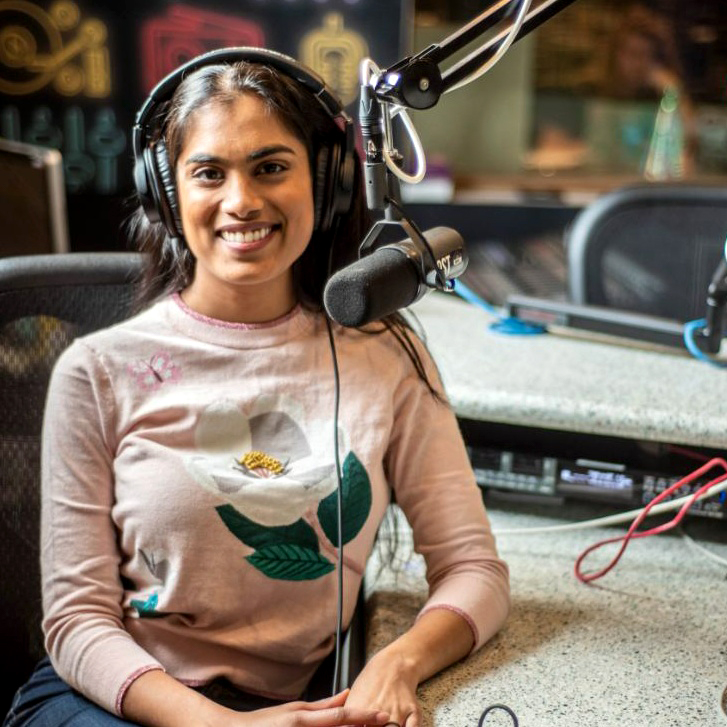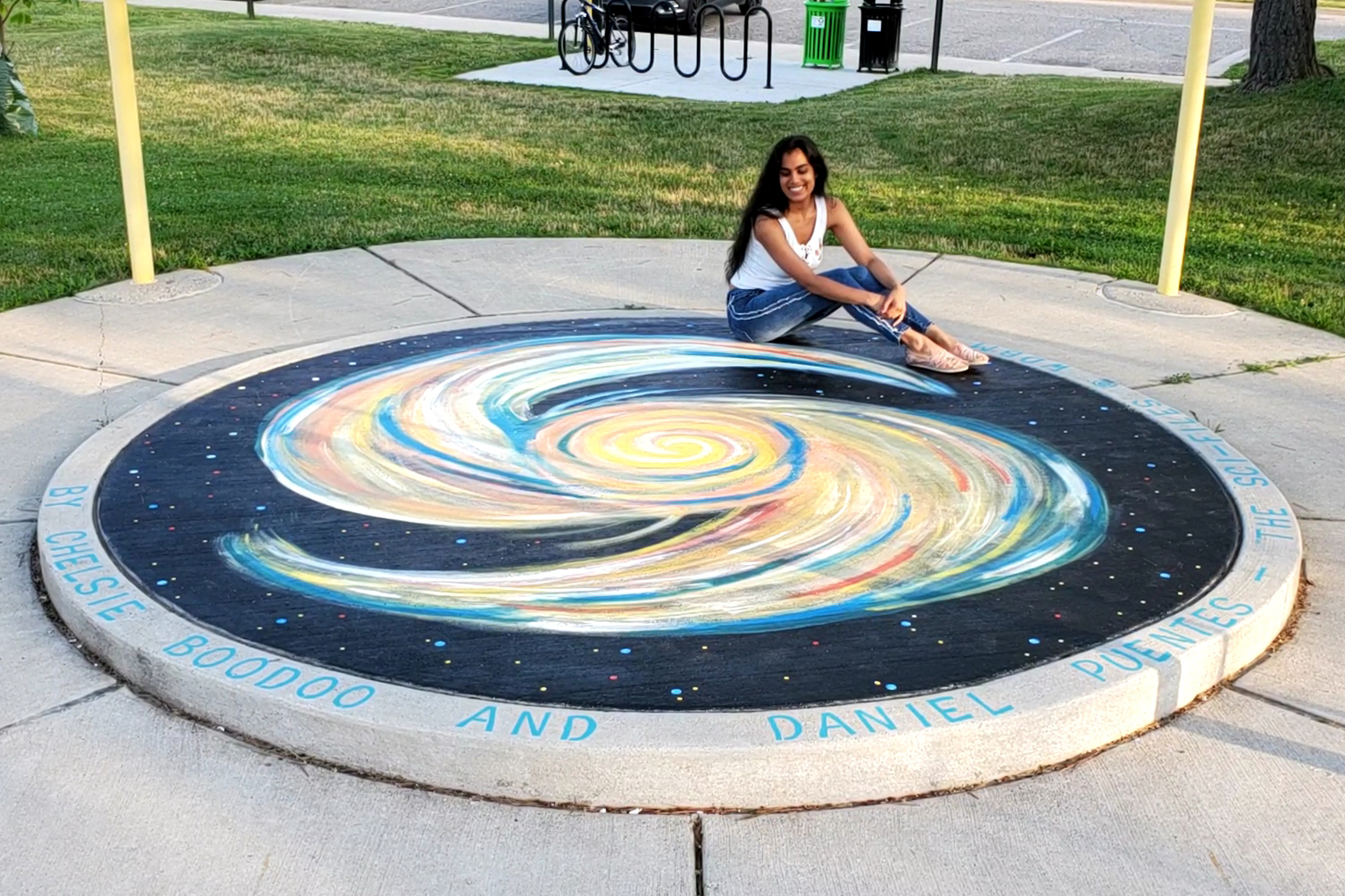Biosystems engineering Ph.D. student receives national award for science communication efforts
Chelsie Boodoo, a doctoral student in the MSU Department of Biosystems and Agricultural Engineering, has been honored by the Center for Advancing Research Impact in Society for her research and outreach activities.

While she was still living in her hometown of Miami, Chelsie Boodoo began taking Toastmasters classes to improve her public speaking skills. A lifelong dancer, she knew how to communicate through body language, but wanted to grow her confidence speaking in front of a group.
Boodoo’s experience with Toastmasters sparked an interest in learning more about how she could combine her communication skills with her love for science. After attending ComSciCon, a series of science communication workshops for graduate students, Boodoo, a doctoral student in the Michigan State University (MSU) Department of Biosystems and Agricultural Engineering (BAE), was inspired to help MSU students learn more about the value of science communication.
She founded MSUSciComm, “a student-run organization empowering students and young professionals to communicate complex scientific topics in clear and engaging ways.” She’s also a digital content creator for the MSU Science Festival and founder and co-host of “The Sci-Files” on Impact 89 FM, a show highlighting student research at MSU, along with physics Ph.D. candidate Daniel Puentes
For this work, Boodoo and Puentes have received the 2021 Center for Advancing Research Impact in Society (ARIS) Broader Impacts Champion Award. They are among three Spartans to be recognized by ARIS.
The award honors individuals who have “contributed significantly to establishing and advancing the National Science Foundation broader impacts criterion,” which includes research itself; activities directly related to research, such as lab training; and complementary activities, such as community outreach.
“This award makes me feel seen,” said Boodoo. “It’s nice to know that all of my hard work actually did pay off and people are starting to see the importance of it, and the need for science communication.”
Science communication is critical
Science communication helps non-scientists understand scientific topics. Scientists can communicate their research effectively by employing tactics such as using layman’s language, visual aids and comparisons that are familiar to their target audiences.
“As scientists, we're usually taught that it's our data that's important, but if we can't communicate that data effectively, we can't actually reach the public or certain collaborators outside of academia,” Boodoo said.
Science communication can take many forms: writing, speaking, art, policy and outreach.
"Usually, people are only encouraged to communicate their science whenever they are up for some award at a conference or if they're applying for funding,” Boodoo said. “By effectively communicating our science, we're able to have a much further reach and we're able to have a much deeper impact.”
Boodoo said her advisor, BAE Professor Evangelyn Alocilja, has been supportive of her science communication work. In fact, Boodoo is integrating science communication into her thesis, which focuses on developing a biosensor test to detect African Swine Fever, a fatal infectious disease in pigs. She is planning a global symposium for Alocilja’s already-established network of infectious disease researchers so that they can connect and share their resources and knowledge. The symposium, sponsored by sponsored by the Global Alliance for Rapid Diagnostics (GARD), will take place June 25-26, 2021. It is open to high school students, undergraduate and graduate students, researchers and others interested in infectious diseases and public health.
Register for the GARD Innovation Forum
Science and communication: "It should go hand-in-hand"
She’s not sure what she wants to do once she’s finished her doctorate, but Boodoo is sure she wants to integrate her science communication skills into her career, whether it’s through pursuing opportunities in science media, policy, or even art.

“It would be nice to be have a career where I can practice science and communication together, because it shouldn't have to be separate,” Boodoo said.
She recently completed an internship with the Arms Control Association focused on international security, and the City of East Lansing commissioned her to co-create science-inspired art. She’s also hoping to do some science art in Miami in the near future.
Boodoo hopes to inspire young women of color to get involved in science and science communication.
“Science is for everyone. Science communication is for everyone,” she said. “I really do want everyone to know that they can be a scientist. And scientists need to know that they can be science communicators. They should be science communicators. It should go hand-in-hand.”
Boodoo’s passion to learn more about science and science communication, while helping others do the same, serves as her motivation to achieve her goals.
“I like the fact that scientists are very curious, and that they're passionate about what they're curious about,” she said. “It's the curiosity that always keeps me going.”



 Print
Print Email
Email



